The scourge of the broad bean grower, blackfly are not just unsightly. They weaken plants and leave them susceptible to diseases and infections. The best way to get rid of blackfly on broad beans for good is not as difficult as it sounds.
What Are Blackflies?
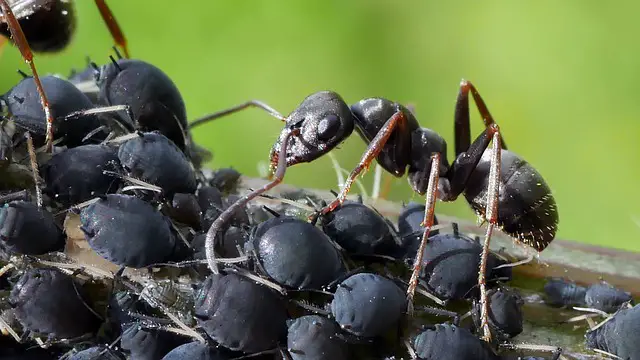
The blackfly that attacks your broad beans is a member of the aphid family. They survive by sucking the sap from your plants, this is the lifeblood of your broad bean plants (and any other plants). Because this sap is mainly sugar the blackfly have to consume much more than they can actually eat, to get enough nutrients for them to survive.
They excrete a sugary substance known as honey dew and although to the blackfly this is waste, to ants its food. For this reason ants farm blackfly, moving them from plant to plant, and even defending them against predators. As they travel through the plants in your garden, they spread any diseases or infections to each plant they feed on.
One way to stop the ants is to spread a ring of Vaseline (petroleum jelly) around the base of the beanstalk. A 2-3 inch ( 50-80 mm) barrier is sufficient to stop the ants from climbing your beanstalks. If the ants can’t protect the blackflies, then the natural predators can control their numbers more efficiently.
It’s not all bad news though, because there is a way to get rid of blackfly that doesn’t involve chemical pesticides. It all starts with the health of your plants, blackfly are attracted to plants that are struggling. These ailing plants send out minute electrical signals, probably calls for help.
Unfortunately the help they receive is not the type us gardeners want to see. So the best cure is prevention.
The Natural Cycle of Life

To understand this with more clarity we need to look at the way nature works. In the whole of the natural world, the weak are sacrificed to make way for the strong. To put it another way, it’s the survival of the fittest.
So plants that are living under stress due to environment, climate, nutrition, or whatever, become sick. Then nature sends in the clean up squad, insects to suck the remaining life from the plants, (in this case blackfly). As the plant dies it falls back to the soil and is eventually recycled into soil again by worms.
So the natural cycle of life removes the weak to make way for the strong. No life is wasted, the nutrients from one plant get transferred to the soil and ultimately into the next plant to take its place.
How to Prevent Blackfly From Attacking Broad Beans
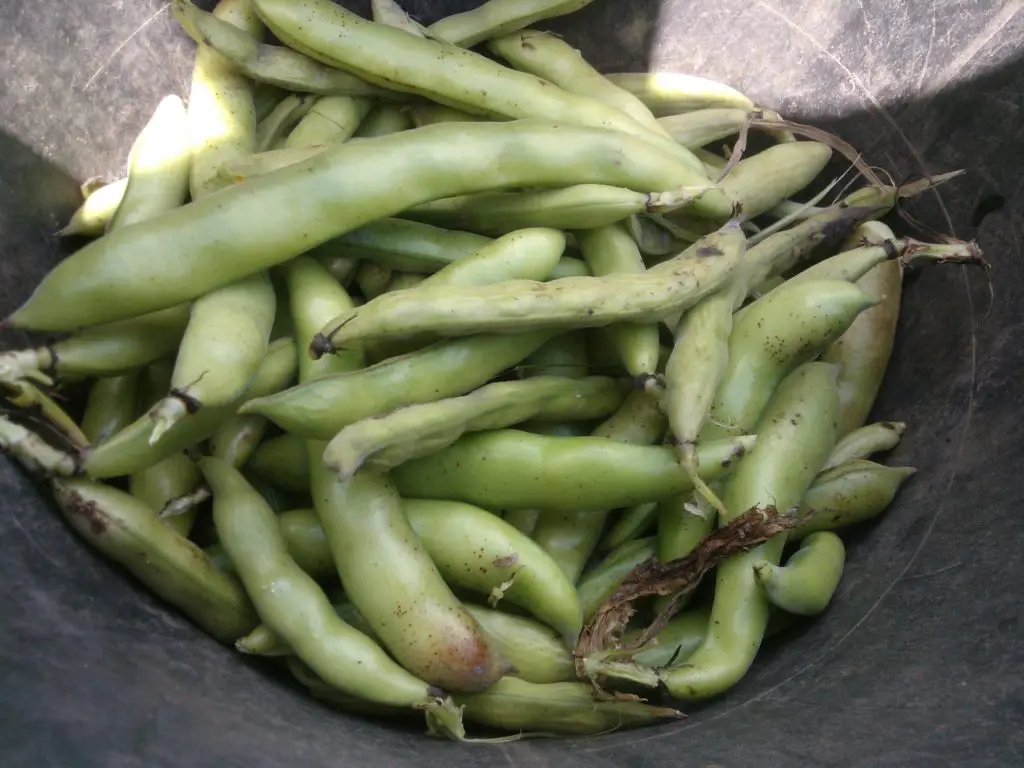
As with all plant growing, soil preparation is key and broad beans are no different. If you are using well rotted manure or compost this should be done at least 12 weeks before you plan to sow your beans. Apart from that initial nutrient adding compost/manure broad beans should not need any more fertilising. Too much is as bad as not enough and can cause stress in your plants.
Whether you are sowing your broad beans in Autumn or Spring, they require fertile, free draining soil and full sun or partial shade. Broad beans prefer some protection from wind, and even if you are growing dwarf varieties they will need support.
Once the broad beans start to flower and you have enough flower sets to produce a crop of beans, pinch the growing tips off the plants. These young, green leaves and tips can be cooked and eaten (they taste just like spring greens). As blackfly prefer tender young plants by pinching the tops off you will deter them from settling on your plants.
Companion Planting to Prevent Blackfly
Blackfly are the main food of hover fly larvae, by growing plants that attract hover flies you will deter blackflies. Also ladybird larvae and lacewings gorge on blackfly and other aphids. The plants below are all known to attract hover flies, ladybirds and lacewings grow as many as you can to get better protection.
Poached Egg Plants
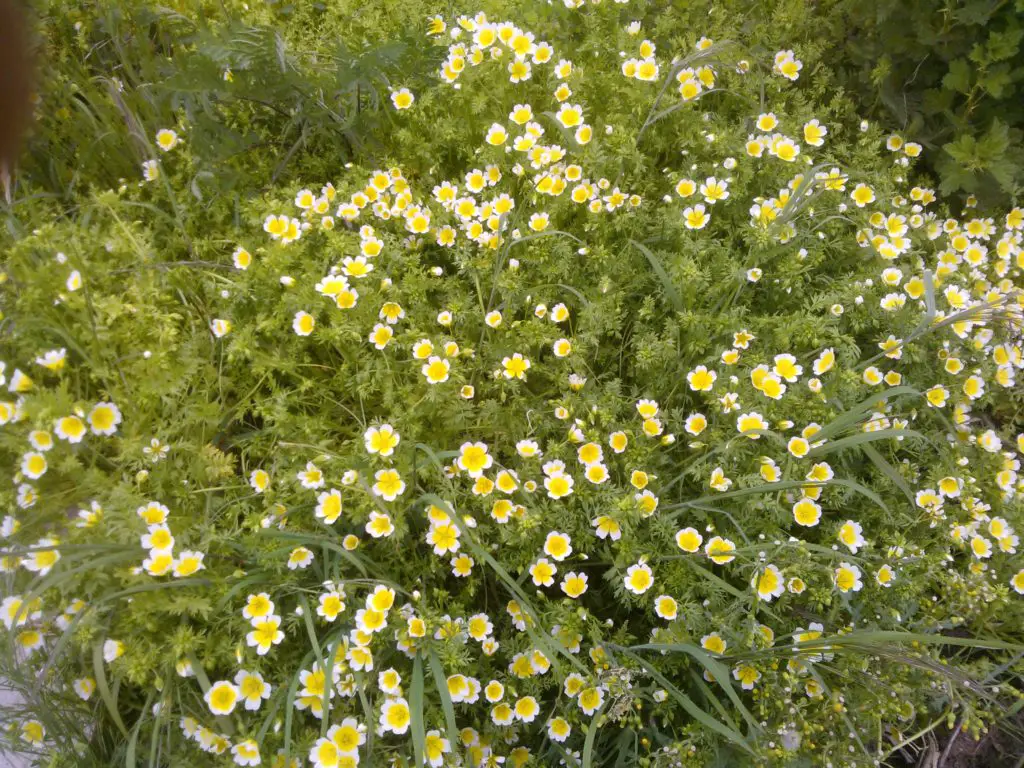
So called because of their resemblance to a poached or fried egg, these early blooming annuals are top of my list. Low growing, feathery leaves and beautiful flowers producing pollen and nectar to attract the beneficial insects in early Spring. These plants are so prolific that one sowing is enough, they will self seed providing plants for many years to come.
Oregano

Allow this fragrant herb to bloom to keep a constant supply of blackfly feeders coming to your garden. I grow oregano in large clumps to attract many beneficial insects.
Buckwheat
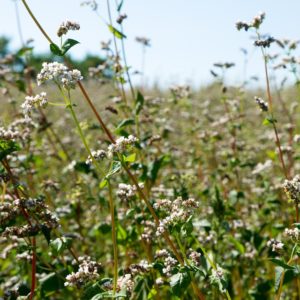
Grown as a cereal crop, buckwheat is closely related to rhubarb and is attractive to many beneficial insects including pollinators like bees and butterflies.
Cosmos
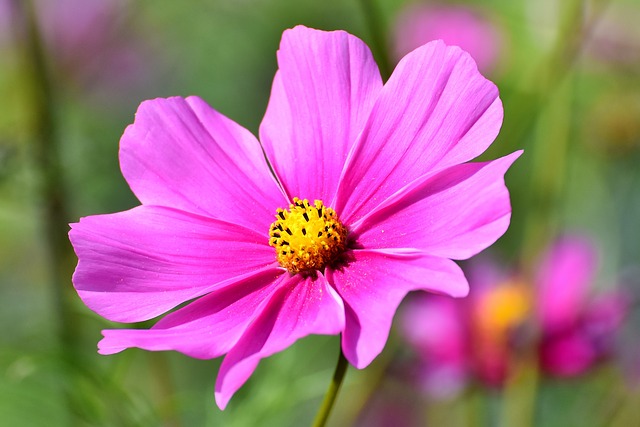
With their feathery leaves and wide open flowers, the cosmos attracts many beneficial insects to your garden. They also attract aphids including blackfly so keep them separate from your broad beans.
Dill
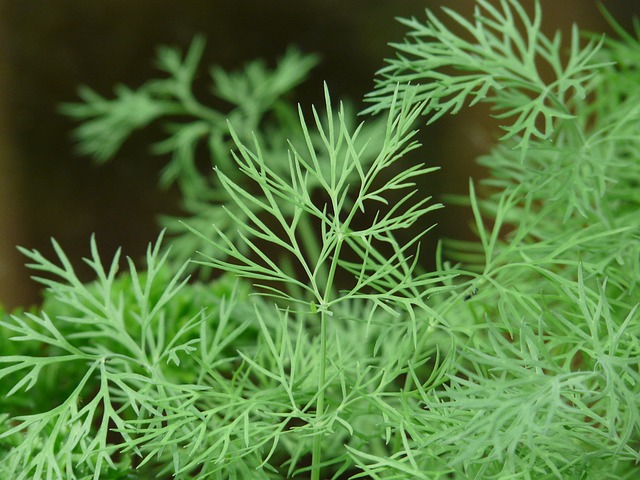
Another herb that attracts feasters of blackfly, dill can be grown in companion with broad beans to protect the bean plants from aphid attack.
Yarrow
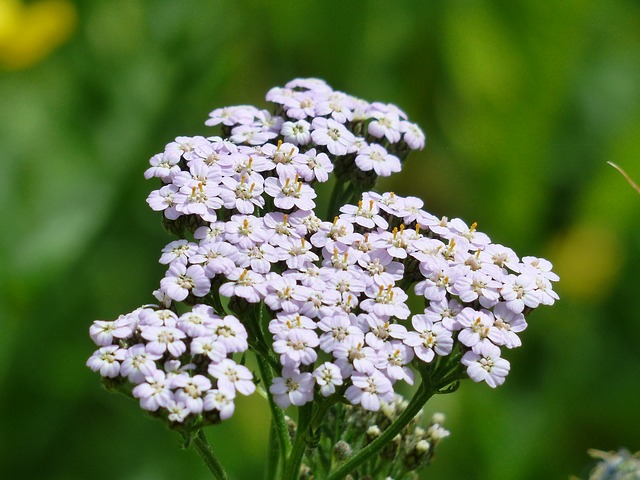
A herbaceous perennial plant with feathery leaves and clusters of white flowers. Found in meadows and pastures and worth adding to your borders to add height and many beneficial insects.
Tansy
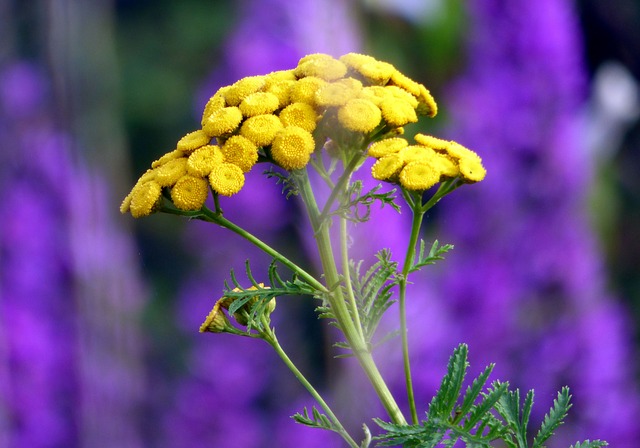
Although tansy is used to repel some of the insect pests, it does attract ladybirds, lacewings and hover flies.
Alyssum
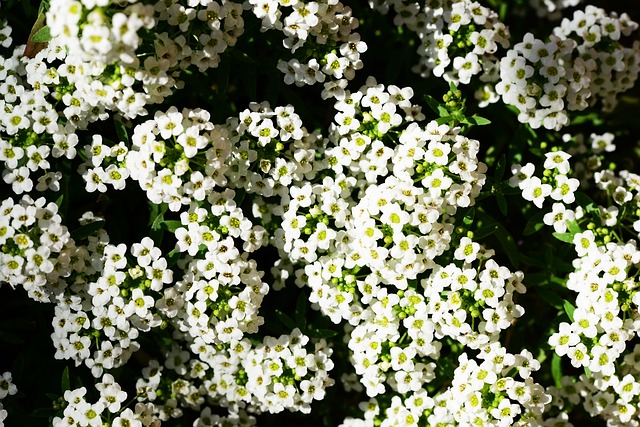
This popular flower usually found in borders or hanging baskets is very attractive to our friendly blackfly eaters.
To find out what plants repel aphids in general, check out my previous post: Plants that repel aphids.
How to get rid of Blackfly on Broad Beans
Method#1 By Hand
If you are unfortunate enough to have a problem with blackfly, for what ever reason you can get rid of them naturally. If you have a small infestation, you can just gently rub them between your thumb and forefinger. They are soft bodied and will squash easily.
Method#2 Water Pressure
If that is a bit too messy for you then just spray the plants with a hose. The problem with the hose is if your plants are small it can be too powerful and damage the broad bean plants.
Method#3 Soapy Water
Mix a few drops of washing up liquid with warm water and either apply with a sponge or use a spray bottle.
Method#4 Insecticidal Soap
If you prefer you can buy pre-mixed organic insecticidal soap sprays to get rid of many pests blackfly included.
Method#5 Neem Oil
Another natural solution, neem oil mixed with water and applied to your broad bean plants will get rid of blackflies and prevent them from landing in the future.
Method#6 Essential Oils
Mix a few drops of Thyme, clove, rosemary, and peppermint essential oils in a spray bottle with water. Spray this mixture all over your infested broad bean plants to kill the blackfly and their young.
As with all these sprays, they have to be reapplied after rain, or over time. It is a much more beneficial solution to grow healthy plants and add companion plants to attract blackfly predators. These will keep the blackfly away from your broad beans naturally.
Prevention Is The Best Cure
So to recap, once a plant becomes sick for whatever reason the first call of nature is to use any energy left in that plant. In this case stressed broad bean plants get ill and blackfly arrive to benefit from the beans energy. The way to get rid of blackfly on broad beans is to prevent your plants from falling sick.
You need to be aware of the optimum conditions for the particular plants you are growing. Soil, light, nutrients, water and support. Support in the form of stakes but also support takes other forms…Companion planting.
Use companion plants to attract beneficial insects and to repel the harmful pests. Although you have created an artificial world for your plants, it’s still runs by natural laws. We all need help from time to time, our plants included.

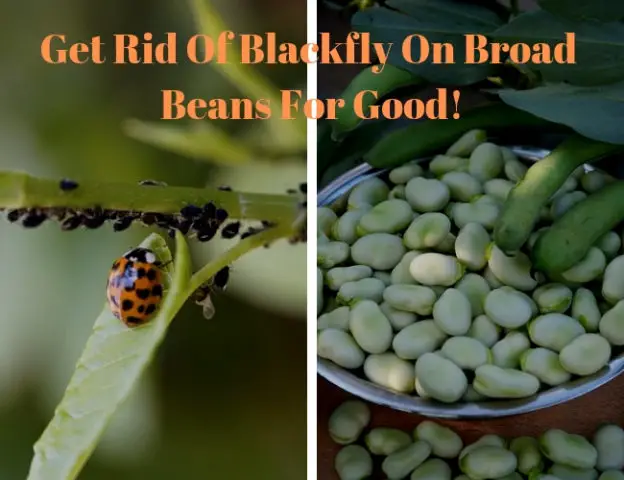
An excellent article. Thank you
Thank you Andrew for taking the time to comment.
All the best
Steve
Is it advisable to compost blackfly infested broadbean plants?
Hi Oliver,
As long as your compost heap/bin heats up it is fine to add blackfly covered plants.
The heat will kill any blackfly, and if they have laid eggs the microbes in the compost will deal with them.
All the best
Steve
re black fly on broad bean plants. please specify the ratio of neem oil to water; thanking you
Hi Maria,
Sorry for my late reply, I’ve been in hospital, I usually use 2 parts oil to 8 parts water.
I hope I’m not too late.
All the best
Steve
absolutely amazing article and advice.
Everything makes so much sense – having worked with essential oils with animals, I can understand that aspect, how brilliant.
Companion Plants – so perfect.
It was great to be able to show my Father, who is 89, that he is over feeding all the plants – and now we have agreed to a 4 week break to try and save the broad beans and runner beans.
I had no idea about the ants farming the blackfly – amazing – I love ants, have to ask them to keep to the bottom of the garden!!
Thank you so much.
Linda.
Hi Linda
Thank you so much for your kind comment,
I hope the beans are doing well, and good luck to your father, my own dad who is 84 is enjoying some raspberry canes I planted for him 4 or 5 years back. He’s getting plenty of fruit now.
All the best
Steve